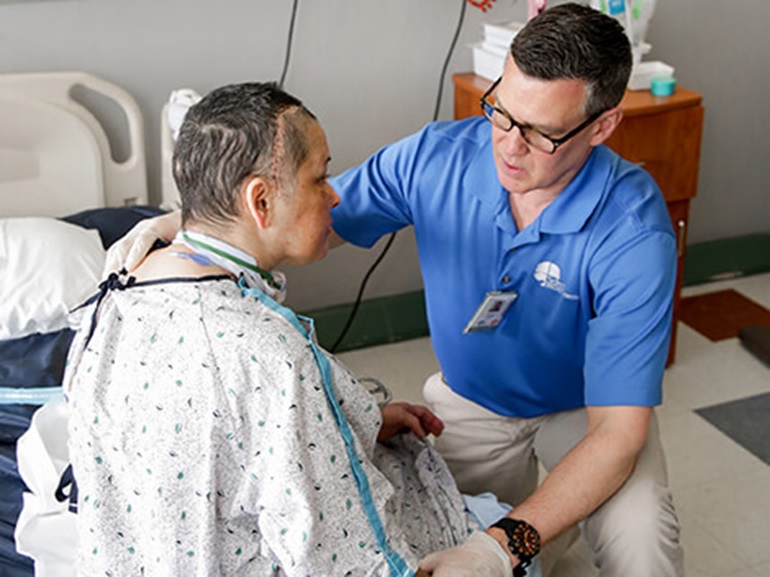Brain Injury
Individualized care that optimizes recovery
Critical Illness Recovery Hospitals can play a significant role in treating and healing the side effects of traumatic brain injury (TBI) or stroke. Our program is designed for patients requiring round-the-clock medical monitoring. Therapy, when medically appropriate, is provided.

We make recovery possible
-
Our expert clinical staff is dedicated to providing individualized evaluations and close patient monitoring. We offer focused, personalized treatment tailored to each person's specific recovery goals.
Our interdisciplinary team provides:
- Daily physician visits
- Nursing care with registered nurses who are advanced cardiac life support-certified
- Respiratory therapy- 24 hours a day, seven days a week
- Pharmacy
- Physical therapy
- Occupational therapy
- Speech therapy
- Dietitian
- Case managers
-
The program is overseen by a neurologist. In addition, internists, pulmonologists, nephrologists, orthopedic consultants and infectious disease physicians address the medical issues presented by TBI and stroke patients such as:
- Respiratory management- including mechanical ventilation liberation and airway management
- Weekly ventilator wean rounds with pulmonologist
- Dialysis or renal management
- Wound care (including surgical wounds; stage 3 or 4 pressure ulcers)
- Infectious disease management (i.e., sepsis and/or multidrug-resistant organisms)
- Pharmacological management (i.e., stabilizing drips)
- Specialized nutritional management (i.e., total parenteral nutrition and management of naso-gastric and gastrostomy/jejunostomy tubes.) These tubes supply liquid medicine and nutrition to critically ill patients. They are inserted directly into a vein, down the nose or under abdominal skin to either the stomach or small intestine, respectively.
-
- Language/communication evaluation and treatment for:
- Aphasia, the loss of ability to understand and/or express speech, and language
- Dysphagia, difficulty/discomfort in swallowing (program includes instrumental swallow evaluation and vital stimulation)
- Cognitive retraining to overcome deficits in thinking, decision-making and guidance on how to stay safe
- Mobility program focused on functional movement (e.g., getting in/out of bed, use of a wheelchair and walking)
- Balance, coordination, muscle strength and range of motion
- Daily living activities (e.g., bathing, dressing, toileting and self-feeding)
- Family education and training on how to help your loved one as he or she moves through the recovery process and the next level of care, or home.
- Language/communication evaluation and treatment for:
Brain injury recovery
When someone you love suffers a brain injury or stroke, you have many questions. What happens next? Will they be the same? What type of care is needed?